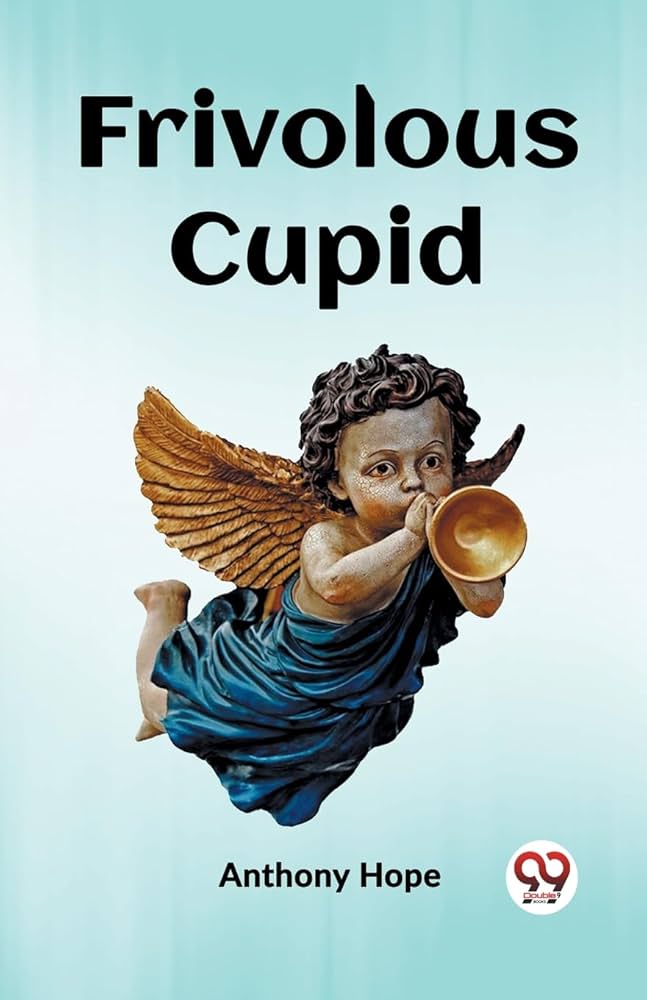Chapter V — Frivolous Cupid
byChapter V opens amid the ever-bubbling atmosphere of Poltons Park, where guests trade not only pleasantries but pointed glances and subtle moves in a game of social chess. The narrator, a quietly attentive observer, first paints Jack Ives as bold and straightforward—one of the few men at ease in courting Trix Queenborough despite her wealth and status. Rather than being intimidated, he thrives on the challenge she presents, while others circle cautiously, weighed down by propriety or calculation. Trix, however, is no passive recipient of affection. She revels in the tension she creates, drawing admirers close only to keep them dangling. Her behavior casts uncertainty over every interaction, causing stirrings among both friends and rivals, and drawing out motives not easily confessed in words.
As the narrative progresses, Lord Newhaven’s arrival sharpens the mood. His presence is a reminder that courtship in their circle is as much about match-making as it is matchmaking. Though aristocratic and earnest, he finds his pursuit complicated by Trix’s mercurial temperament. The narrator, feeling the pressure of competition and the charm of Trix’s teasing nature, finds his own emotions in flux, yet unspoken. Meanwhile, Mrs. Wentworth emerges—a widow with quiet dignity who seems out of place among the emotional dramatics, yet increasingly central. Jack Ives, perhaps fatigued by Trix’s elusive nature or moved by genuine feeling, begins to seek refuge in Mrs. Wentworth’s calm presence. His transition is subtle, almost imperceptible, but speaks volumes about the type of affection that sustains over the thrill of pursuit.
The narrator’s tone blends curiosity and reflection as he witnesses the romantic landscape shifting beneath his feet. Trix, realizing that Ives is slipping from her grasp, attempts to reassert her influence, but too late. Her flirtations, once an effortless tool of control, now appear hollow in contrast to the sincerity Mrs. Wentworth evokes in Ives. Ives’s sudden engagement to the widow surprises many, not least Trix, who masks her reaction behind laughter and clever remarks. Yet beneath her composed exterior lies the sting of rejection—not merely of affection, but of the control she thought unshakable. This event forces the guests at Poltons to reevaluate their positions. The delicate games they’ve played have real consequences, not just for status, but for emotional fulfillment and self-awareness.
Trix’s influence continues to ripple, affecting not only the suitors but also the women who quietly admired them. Her careless provocations, though masked in wit, reveal the underlying cruelty of using affection as entertainment. Lord Newhaven, sensing that he too has been a pawn, withdraws with dignity, leaving behind not bitterness, but a lesson in restraint. For the narrator, who has observed all with a blend of detachment and empathy, the revelation is more personal. He sees the dangers of passive observation and missed opportunities. His neutrality has shielded him from risk, but also from the depth of feeling that Ives now embraces. Poltons, once a pleasant escape, now feels like a stage of unfinished plays, of emotions rehearsed but never fully performed.
Love in this world is a negotiation between heart and calculation, and those who thrive learn to recognize the cost. Jack Ives’s choice, while not grand in its announcement, signals a profound shift in values. Mrs. Wentworth, quiet but resolute, represents more than a romantic reward—she stands for clarity, honesty, and the kind of affection that grows through understanding rather than conquest. The shift away from Trix’s orbit is not just a change of affection, but a turning point in maturity. By stepping away from the performance, Ives finds something real. In contrast, Trix remains where she began—admired, surrounded, yet curiously alone. Her power, once taken for granted, is shown to be fragile when not reciprocated with sincerity.
This chapter illustrates how romantic entanglements, when entangled with ego, expectation, and social play, can lead not to triumph, but to emptiness. Trix’s arc is a lesson in the limits of manipulation and the unexpected strength found in gentleness. Jack Ives’s pivot toward Mrs. Wentworth redefines the kind of love worth pursuing—one grounded in mutual respect and quiet connection. In the end, Poltons Park becomes a symbol not just of leisure, but of awakening. Beneath its hedges and drawing-room banter, choices are made that shape not just futures, but personal identities. The story suggests that while Cupid may be frivolous, the heart, when awakened to truth, is anything but.

